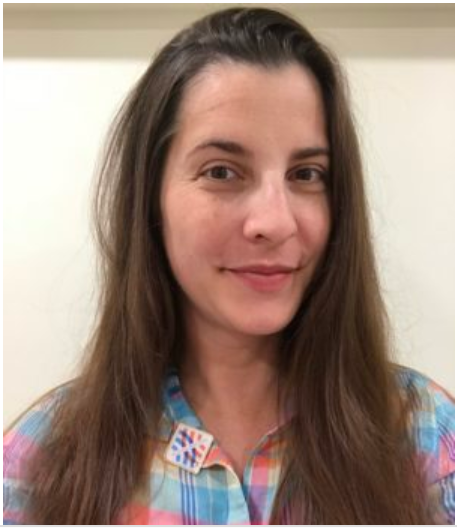Over the past several years, people from all over the country have opened up their hearts to The Conversation Project (TCP). Through the sharing of a myriad personal narratives, TCP has been able to build our campaign and use the messages from these stories to reemphasize the deep necessity of having end-of-life conversations. To show our appreciation to all who have opened the doors into their personal lives to support our work, the TCP team has decided to reciprocate by showing you who we are, why we do what we do and how this work has impacted us.
Meet TCP’s Director, Kate DeBartolo
How long have you been a part of the TCP team and, in your own words, how would you describe your role?
I joined the TCP team in April 2013. I remember it clearly, as I went out to California for a kick off meeting and was immediately “hooked” on the topic and the people we worked with in the field.
My role now as the Director of the initiative is to lead our team as we design public engagement approaches, content development, community engagement strategies, and measurement approaches.
What has been the ultimate highlight of working on the team?
I’ve loved seeing the impact this work has on individuals around the country (and world). To learn that our resources helped a family have a discussion that may have changed the outcome of someone’s end-of-life experience is truly remarkable. The relief and thanks we receive – along with the power and humbling stories -is what keeps me so engaged with the work.
I’ve also loved seeing the creative ways community leaders are engaging the public in their regions. I’ve learned not to be surprised by anything anymore!
What has been your greatest lesson learned?
There is no way to have one conversation and be done. Our wishes and relationships change with time. I’ve been talking publicly about this topic for years and still learn new things at each event where people share their stories. I’m always amending my own wishes and the concepts I want to introduce to others. Not only does this hit home how frequently we should be talking about our values and what matters to us, but it also makes me realize how much we can learn from each other and the experiences of others. People bring up concepts I’d have never thought of on my own, but are incredibly important. All the more reason we should be talking freely about this.
Working for TCP, you get the opportunity to encounter so many people and hear a breadth of moving stories about how our initiative has impacted lives. What has been one of, if not, the most memorable story you’ve heard or interaction you’ve had with someone thus far?
Part way through a 2015 Conversation Starter Kit session in Orlando, FL a woman got up to the microphone and said, “I’ve just realized I owe my father a tremendous apology.” The night before he had started to get really sick (she listed off his various medical ailments) and was refusing to go to the hospital. She and her siblings started calling him/texting/going to the house to convince him to go. She laid it on thick with a speech about how her son needed him in his life. Everyone had an opinion on what he should do.
In going through the Starter Kit session (that she was attending for professional reasons, not personal), she realized no one was asking him what he wanted – and he was making his wishes pretty clear. By the end of the event, she had already texted her siblings to meet that afternoon and ask their dad about what he wants and let him explain what matters most to him, not just what’s the matter with him. It was incredible to see how quickly the concept she was learning was going to affect her whole family. There have since been many experiences like that – but that one stands out so clearly to me.
People often assume that because we’re in the business of end-of-life, our day-to-day activity must be leaden with a morbid overcast. However, the TCP team and our community champions have constantly debunked this notion through their expression of the joy that they find in this line of work. Can you say a little something about this paradox of finding happiness in talking about the topic of death/end-of-life?
I’ve continually found that when people can wrap their minds around the inevitability of death, they live more purposeful and fulfilling lives. By getting folks to focus on what matters most to them, and who matters most to them, they are able to have healing conversations and relieve guilt and burden. The reframing about how you want to live through the end of your life has resonated with many – especially me.


I am interested in staying connected. Is there workshop that could be hosted at senior center in the Borough of Queens?
Thank you.